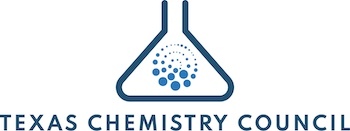Complete Story
01/24/2025
The Port Lavaca shrimper who brought a huge chemical company to heel
Houston Chronicle | Chris Gray | Jan. 23, 2025
The Port Lavaca shrimper who brought a huge chemical company to heel
Port Lavaca was once easy to overlook. Though only two and a half hours by car from Houston, the quaint, historic town deep in the Texas Coastal Bend seemed to belong to an earlier era. Diane Wilson helped change all that.
Like other towns in this remote region, Port Lavaca's economy shifted over generations between relying on what came out of the Gulf of Mexico and on the local chemical plant, in this case, Taiwanese conglomerate Formosa Plastics Corporation's Point Comfort facility across Lavaca Bay.
A fourth-generation shrimper from nearby Seadrift, Wilson, now 76, became a dogged environmental activist dedicated to calling Formosa to account. Years ago, as reported by the Texas Tribune's Dylan Baddour earlier this month, she and a team of volunteers began collecting samples from the bay.
In a kayak, they'd scour the waterways around the plant and collect millions of discarded plastic pellets. Their efforts helped win a federal lawsuit Wilson filed in 2017 under the Clean Water Act, yielding a landmark $50 million settlement structured as a trust fund for the community. The investment seeds it planted back then are starting to bear fruit.
With the money—none of which has ever gone into any kind of personal account for her, Baddour emphasized—Wilson helped Port Lavaca's beleaguered fishermen organize the Matagorda Bay Fishing Cooperative, an organization of nearly 40 boat owners who control 77 boats and employ as many as 230 people. It is negotiating to buy Miller's Seafood, a 60-year-old family-run seafood buyer in the area, and has begun the permitting process to create the state's largest oyster farm.
Other projects the trust has seeded so far include a marine science summer camp at the Port Lavaca YMCA and a study of mercury pollution in Lavaca Bay, as well as a global campaign to document pollution from plastics plants like Formosa's. Still to come is a 6,400-acre park around Green Lake set to be developed through a $10 million grant to Calhoun County.
The settlement also forced Formosa to become a more responsible corporate citizen. Since the mid-'90s, the company told the Tribune, it had already contributed over $17 million towards a range of community projects, including roadway improvements, a new medical clinic, and high-school scholarships.
After the settlement, it has spent at least $32 million in cleaning up Formosa installed systems to curb the amount of plastic particles, explored better filtration methods, and upgraded drainage systems to reduce the amount of plastics escaping into the water, "and is engaging with community advocates to identify sustainable solutions," Baddour reported.
But Formosa's change of heart did not arise out of altruism alone. Hardly. According to the Tribune, the company's Point Comfort plant makes around $1 billion a year, or $2.7 million per day. It has simply discovered the penalty it must pay the trust, which has now surpassed $24 million, can be easily written off as the cost of continuing to do business.
"Formosa consented to regular wastewater testing to verify compliance, and to penalties for violations," Baddour reported. "Now, three times a week, a specially engineered contraption analyzes the outflows at Formosa. Three times a week, it finds they are full of plastic. And three times a week, Formosa pays a $65,000 penalty into Wilson’s trust fund."

